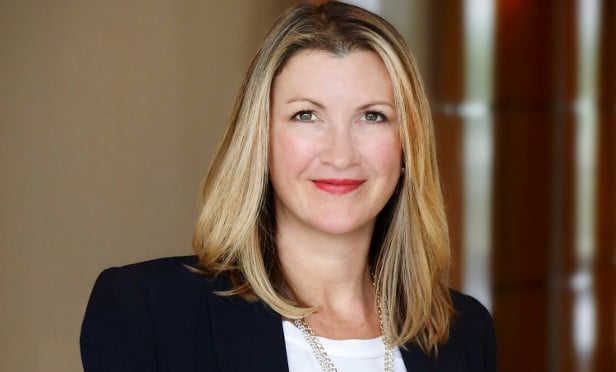
SAN DIEGO—Generally, the new tax plan is seen as something positive, a move that will allow investors to put more money into real estate because of the tax savings, Real Capital Markets' COO Tina Lichens tells GlobeSt.com. As we recently reported, the firm's recently released annual National Investor Sentiment Report revealed that 76.7% of investors would characterize their strategy as buyers. We asked Lichens a few questions about investors' buying strategies and how they view the new federal tax plan.
GlobeSt.com: How are the investors reading the new tax plan?
Lichens: Following great anticipation about what the new tax landscape might look like, reform measures drafted by Congress and signed into law by the president aren't likely to disappoint commercial real estate investors. Generally, the new tax plan is seen as something positive, a move that will allow investors to put more money into real estate because of the tax savings. There is some concern, however, that changes in the tax plan could lead to general inflation which then could lead to or be coupled with an increase in interest rates; however, as the results of our recent Investor Sentiment Report show, most investors (53%) believe that incremental interest-rate increases won't have a substantial impact on their pursuit of transactions.
In the words of one of the commercial real estate advisors we interviewed, Martin Pupil with Colliers, “A small increase wouldn't be a big deal. The catastrophe would be going from 4% to 8%.”
GlobeSt.com: How are they shifting their CRE buying strategies to pursue deals that make sense?
Lichens: In general, we believe investors will use the new tax laws to bolster their acquisition strategies overall. The treatment of pass-through expenses and the 20% deduction it offers provides clear incentive for properties held by LLCs, a very popular vehicle in commercial real estate. This change will be beneficial for all property types and investment strategies.
The new laws are also very favorable in the way capital improvements are treated, for example, provides a clear incentive to improve properties. We believe this contributes to the fact that we are continuing to see a significant number of investors who identify themselves as value-add investors, and to a lesser degree, opportunistic investors.
It will be interesting to see how the new tax plan will impact the flow of capital into other real estate investments. We have seen how some investors have shifted or expanded their focus to diversify portfolios away from core assets to those that may trend toward value add, and to secondary or tertiary markets. There are elements of the new tax plan that could be favorable for an increased level of capital flowing into new development. While new development may be increasing in its popularity, it will be necessary for a number of other market dynamics to be favorable in order for new development to take place.
One element of the new tax-law plan that doesn't necessarily have a tremendous impact today but will become increasingly important in the future is the fact that it expires in 10 years. We'll likely see a shift in attitude and practice when we get down the road, beyond traditional hold periods.
GlobeSt.com: What role is technology playing in CRE investors' strategies?
Lichens: Perhaps the more appropriate question these days is, “Where isn't technology playing a role in CRE investors' strategies”?
Technology is having a dramatic impact on CRE investing, from marketing a property to securing financing to closing transactions. The overarching strategy is to be more efficient and productive. For Real Capital Markets and our clients, that equates to speed to market, depth of reach (to potential buyers), streamlined processes in how properties are brought to market and ease of reporting and tracking. The overarching goal is for sellers to maximize sale price, for buyers to find properties that meet their investment strategy and for transactions to be executed quickly and efficiently.
GlobeSt.com: What else should our readers know about the results in your investor-sentiment report?
Lichens: The report showed the continuing focus by investors on industrial assets, as well as the staying power of multifamily product. Those two product types were running neck-and-neck nationally for the top asset of choice by our study participants. It's interesting to see how industrial sentiment has grown and evolved over the past several years. It has been equally as fascinating to witness the multifamily sector's ability to remain a perennial favorite.
As one participant, David Scherer of Origin Investments, said, “Multifamily is still where you want to be; there is no secular force changing that.”
The year 2018 looks to be a very exciting period for commercial real estate investing. Most experts we spoke with are optimistic about, even bullish on, the prospects for 2018 with nothing to temper their overall enthusiasm. Time will tell what the effect of tax-law change is, the potential for further interest-rate hikes and the impact the volatility we've experienced in late January and early February will have. Future reports should be quite enlightening.
© 2025 ALM Global, LLC, All Rights Reserved. Request academic re-use from www.copyright.com. All other uses, submit a request to [email protected]. For more information visit Asset & Logo Licensing.







